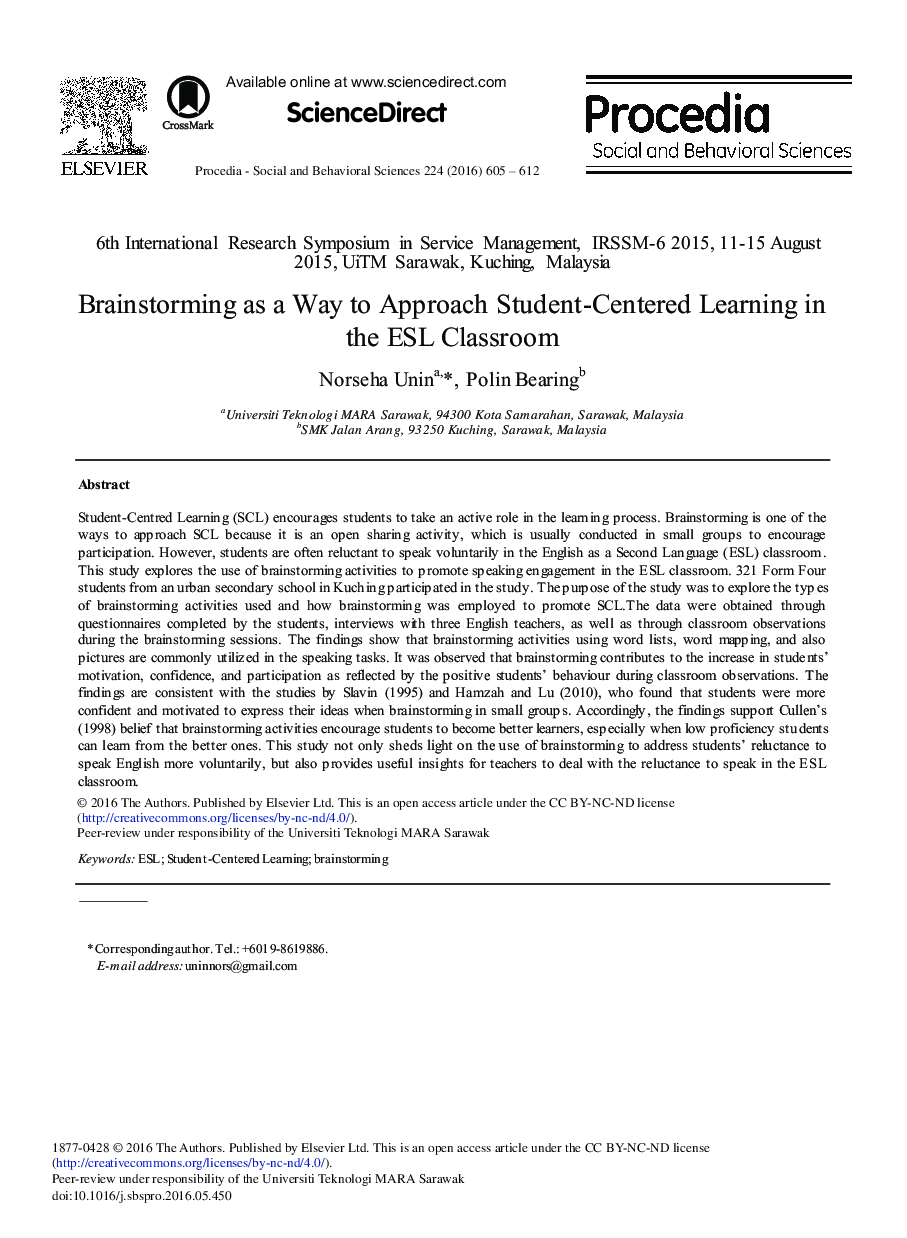| Article ID | Journal | Published Year | Pages | File Type |
|---|---|---|---|---|
| 1107455 | Procedia - Social and Behavioral Sciences | 2016 | 8 Pages |
Student-Centred Learning (SCL) encourages students to take an active role in the learning process. Brainstorming is one of the ways to approach SCL because it is an open sharing activity, which is usually conducted in small groups to encourage participation. However, students are often reluctant to speak voluntarily in the English as a Second Language (ESL) classroom. This study explores the use of brainstorming activities to promote speaking engagement in the ESL classroom. 321 Form Four students from an urban secondary school in Kuching participated in the study. The purpose of the study was to explore the types of brainstorming activities used and how brainstorming was employed to promote SCL. The data were obtained through questionnaires completed by the students, interviews with three English teachers, as well as through classroom observations during the brainstorming sessions. The findings show that brainstorming activities using word lists, word mapping, and also pictures are commonly utilized in the speaking tasks. It was observed that brainstorming contributes to the increase in students’ motivation, confidence, and participation as reflected by the positive students’ behaviour during classroom observations. The findings are consistent with the studies by Slavin (1995) and Hamzah and Lu (2010), who found that students were more confident and motivated to express their ideas when brainstorming in small groups. Accordingly, the findings support Cullen's (1998) belief that brainstorming activities encourage students to become better learners, especially when low proficiency students can learn from the better ones. This study not only sheds light on the use of brainstorming to address students’ reluctance to speak English more voluntarily, but also provides useful insights for teachers to deal with the reluctance to speak in the ESL classroom.
